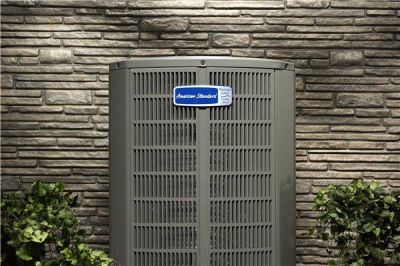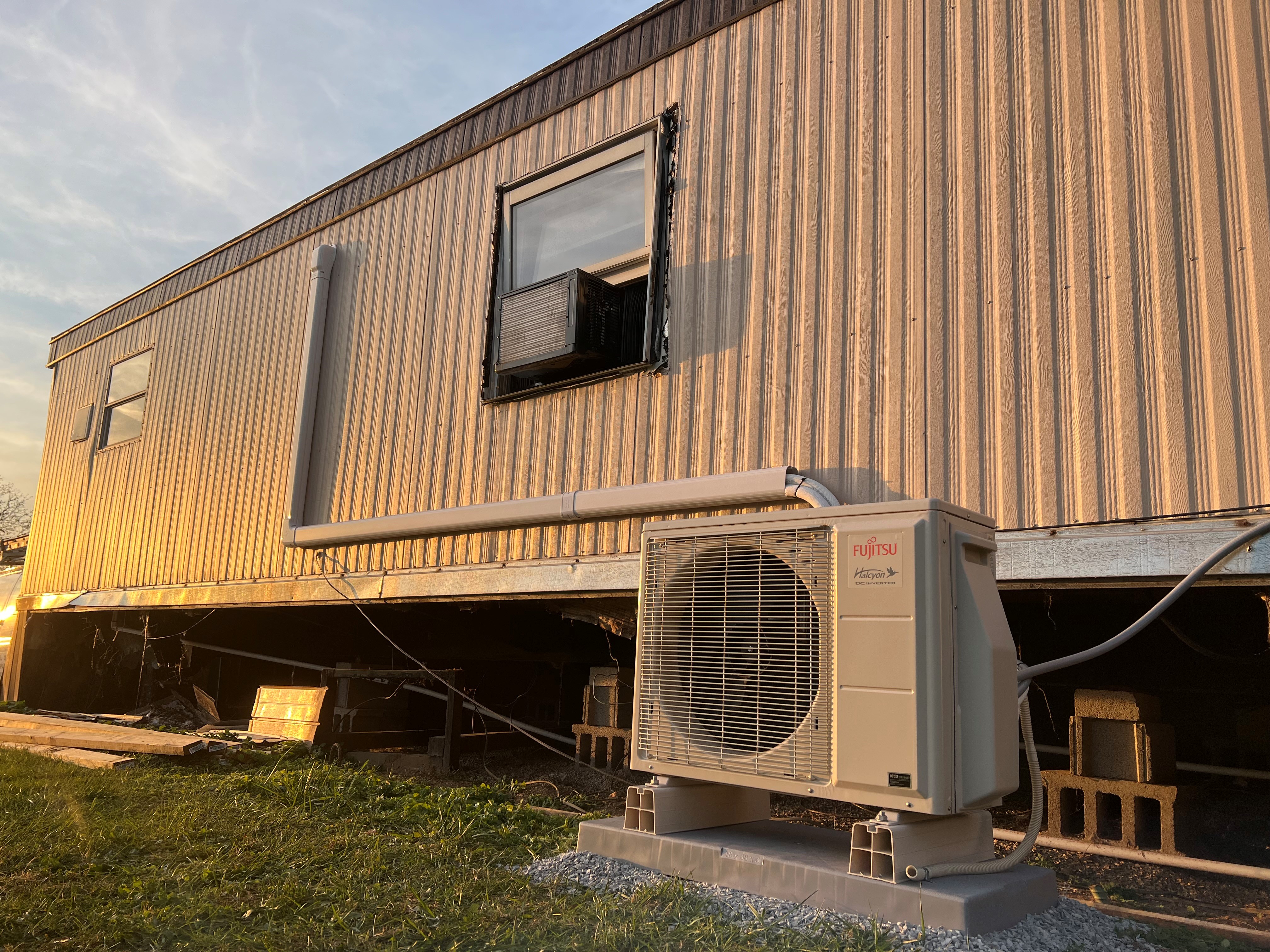 Have you ever noticed that a window air conditioner has two sets of coils? Inside the house the coils are cold and outside the house they are heated. If you take an air conditioner and flip it around so that the hot coils are on the inside and the cold coils are on the outside, you would have a heater. Rather than burning a fuel, what this heater is doing is “moving heat.”
Have you ever noticed that a window air conditioner has two sets of coils? Inside the house the coils are cold and outside the house they are heated. If you take an air conditioner and flip it around so that the hot coils are on the inside and the cold coils are on the outside, you would have a heater. Rather than burning a fuel, what this heater is doing is “moving heat.”
A heat pump is an air conditioner that contains a valve that lets it switch between “air conditioner” and “heater.” When the valve is switched one way, the heat pump acts like an air conditioner, and when it is switched the other way it reverses the flow of refrigerant and acts like a heater.
 Heat pumps can be extremely efficient in their use of energy. But one problem with most heat pumps is that the coils in the outside air collect ice. The heat pump has to melt this ice periodically, so it switches itself back to air conditioner mode to heat up the coils. To avoid pumping cold air into the house in air conditioner mode, the heat pump also lights up burners or electric strip heaters to heat the cold air that the air conditioner is pumping out. Once the ice is melted, the heat pump switches back to heating mode and turns off the burners. Heat pump service, installations and repairs are available in the Harrisburg, Lancaster, and York areas.
Heat pumps can be extremely efficient in their use of energy. But one problem with most heat pumps is that the coils in the outside air collect ice. The heat pump has to melt this ice periodically, so it switches itself back to air conditioner mode to heat up the coils. To avoid pumping cold air into the house in air conditioner mode, the heat pump also lights up burners or electric strip heaters to heat the cold air that the air conditioner is pumping out. Once the ice is melted, the heat pump switches back to heating mode and turns off the burners. Heat pump service, installations and repairs are available in the Harrisburg, Lancaster, and York areas.
A heat pump uses electricity to run equipment that pumps the heat out of the surrounding air or water. This is in contrast to standard oil or gas furnaces that burn the fuel directly to generate heat.
A heat pump is much more efficient. Under normal circumstances, the energy required by the heat pump to remove the heat from the surrounding area is much less than the heat supplied to the home. This results in an efficiency well above 100%, and lower heating costs.
 Fujitsu Heat Pump
Fujitsu Heat Pump
 Fujitsu 2 Zone Ductless Mini-Split
Fujitsu 2 Zone Ductless Mini-Split
 Fujitsu 2 Head Ductless Mini Split and Roth Oil Tank
Fujitsu 2 Head Ductless Mini Split and Roth Oil Tank
 Fujitsu Ductless Mini-Split
Fujitsu Ductless Mini-Split
Call 717-564-1657 Ext. 106 or complete our contact form to request more information.